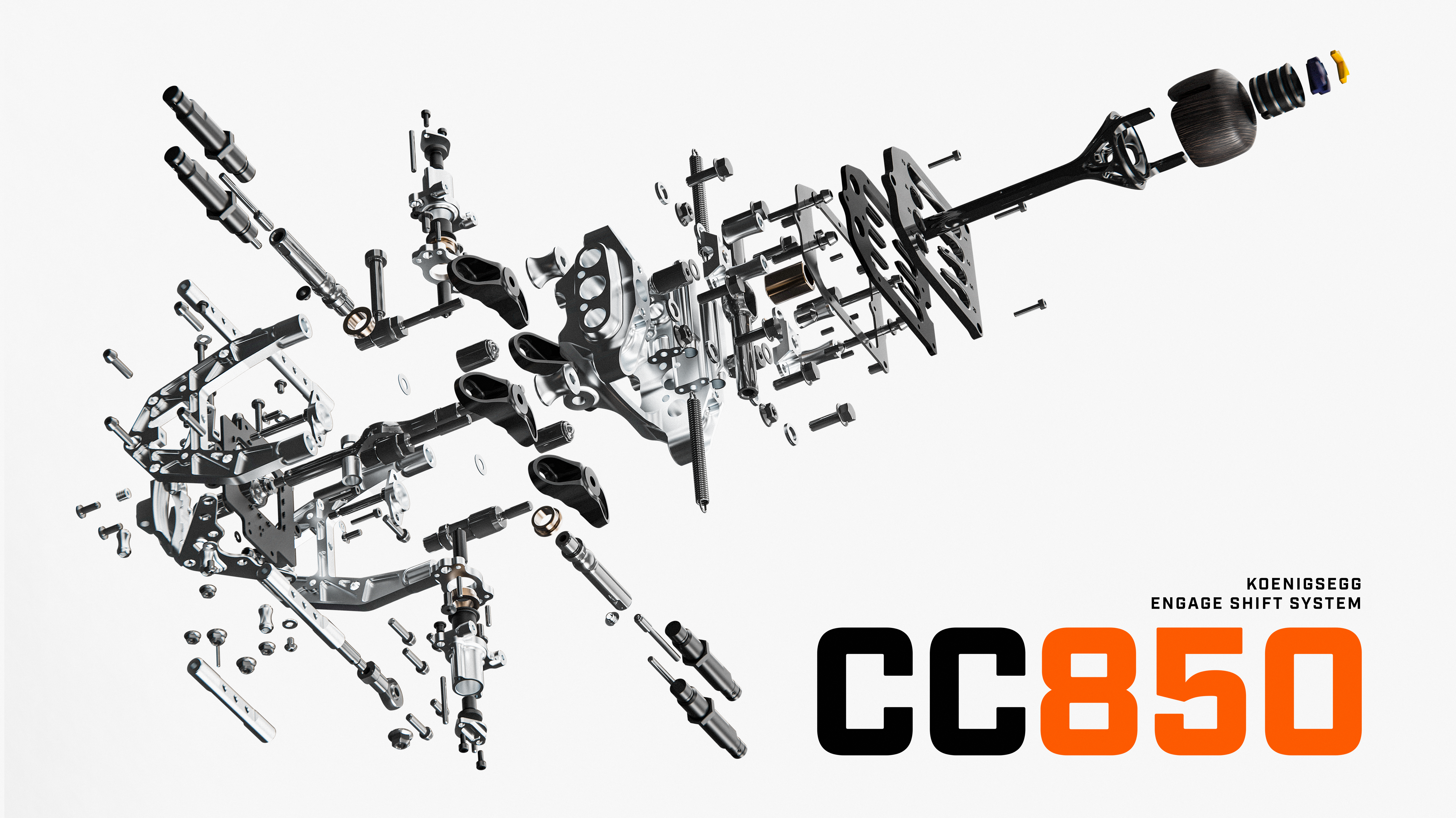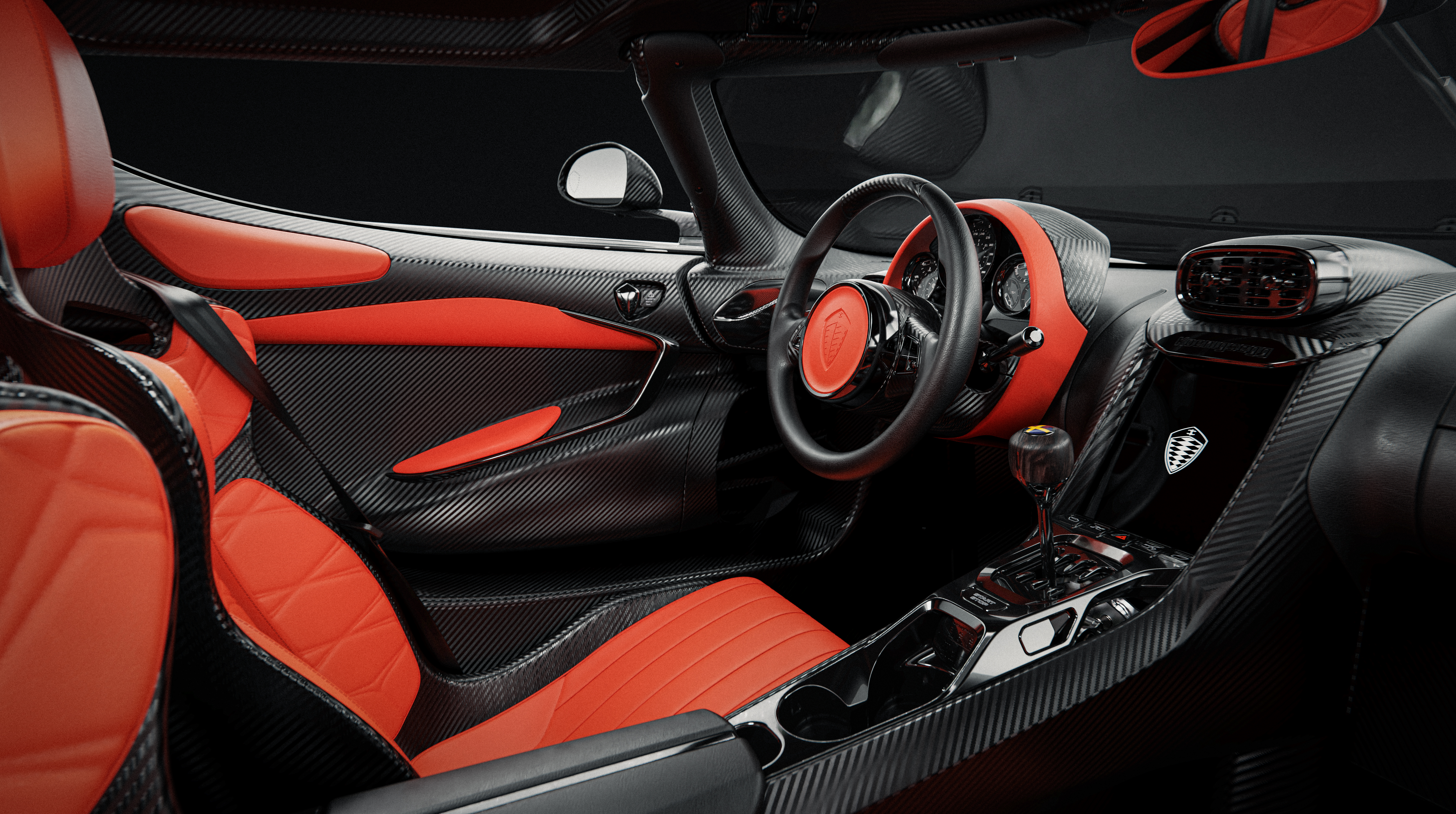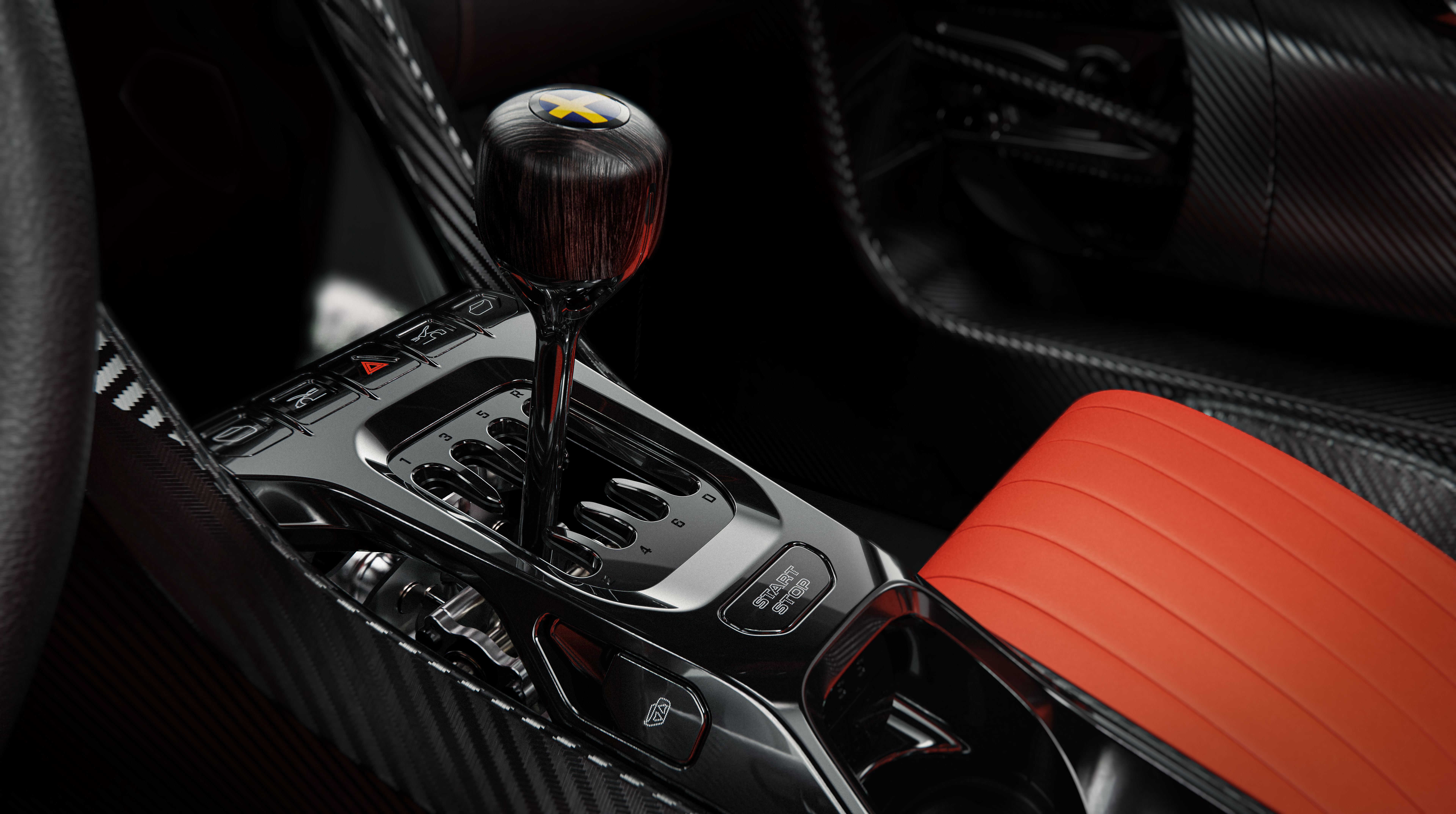How The Koenigsegg CC850 Transmission Is Both Manual And Automatic
The newest car out of Koenigsegg has a clutch pedal and a gated shifter, yet it can shift by itself. Christian von Koenigsegg explains how it all works.
Last week, Koenigsegg surprised the automotive world with the reveal of the new CC850, which pairs the styling of the very first Koenigsegg road car with a drivetrain and chassis derived from the world-beating Jesko. One of the most fascinating aspects of the CC850 is the transmission, which can operate in full automatic mode, or act just like a conventional six-speed manual transmission complete with clutch pedal and gorgeous gated shifter. How can a transmission be both manual and automatic? At Monterey Car Week, I spent a few minutes chatting with Christian von Koenigsegg to figure out exactly how this "Engage Shifter System" works.
The innovative new transmission is based on the "Light Speed Transmission" nine-speed gearbox found in the Koenigsegg Jesko. It's a fascinatingly unconventional gearbox: Instead of using a traditional flywheel and a single or dual clutch, the Koenigsegg transmission puts the clutches where you'd normally find synchronizers in a manual gearbox. These clutches, six of them in total, handle both gear selection (engaging and disengaging as needed to create nine distinct drive ratios) and power transmission. With the LST gearbox and no flywheel, Koenigsegg claims the Jesko powerplant revs faster than any other production-car engine in history.
That gave company founder Christian von Koenigsegg an idea. "It came about when we started driving the Jesko," von Koenigsegg told me at the Koenigsegg display at The Quail, A Motorsport Gathering, part of Monterey Car Week. "I started thinking, hang on a second, we can do something very interesting with this."

Since the LST gearbox engages its nine forward gear ratios via individual clutches, von Koenigsegg realized he could create the experience of driving a conventional manual by putting those clutches under the control of the driver. So the CC850 has a clutch pedal that controls the engagement of the gearbox's clutches via hydraulic pressure.
"That clutch pedal is directly operating the hydraulic pressure of the six clutches in the transmission. You have that absolutely analog clutch feel," von Koenigsegg told me. "You can spin the rear tires, stall the car — it's an analog clutch. It's just controlling the pressure of the clutches inside the gearbox, because there are no synchros, there are no shift forks or anything. You're controlling the clutch pressure with your foot."
The gorgeous, gated shifter in the middle of the CC850's cockpit is basically an electronic signal device — it has no mechanical connection to the transmission. But a complex set of sensors can tell the shifter's exact position at all times, and where it's headed, so the transmission can anticipate which clutches to engage as you complete your shift and bring your foot off the clutch pedal. The result is a semi-electronic, semi-hydraulic shifting system that fully replicates the feel of driving a manual.
"It's an augmented electronic control," von Koenigsegg said, "but we worked really hard to make it absolutely genuine in its analog feel. So you can't just pull it out of gear without the clutch unless you rev-match it. You can't shift down to a too-low gear without forcing it. If you push hard, you feel the resistance of what would be the synchros. If you push the clutch fast, it's heavier. All those kind of things that make it completely natural feeling, like a manual, but having the upside of different gear ratios in different modes."
Right: Since the LST gearbox has nine forward gear ratios, the CC850 offers two distinct gearsets, one for road driving, the other for track use. In Track mode, you get a very tall 1st gear, with tighter spacing between gears 2 through 6. In Street mode, you get a shorter 1st gear and a little bit wider spacing through the rest of the gears, "so you can pull the gears a little bit more," von Koenigsegg said.
And if you don't want to do any shifting at all, simply throw the shifter into the bottom-right gate, which engages fully automatic shifting through all nine gears. "You just drive it," von Koenigsegg said. "If you're tired, in traffic, you go there" — he throws the shifter into Auto — "boom, you're done. Now you're somewhere fun, go there" — he slings the shifter into 2nd — "now you need to use your clutch."

In an unintentional display of just how authentically this system works, von Koenigsegg accidentally stalled the CC850 on the show stand, easing off the clutch pedal with the parking brake still engaged. "It can't be a gaming device," he said. "It has to be a proper traditional manual with all the pros and cons. This needs to have all the quirks of a manual, otherwise it's a failure."
There's one thing notably missing from the CC850: paddle shifters. That was a purposeful choice — if you want to shift for yourself, you have to do it exactly as you would in an old-fashioned stick-shift car, using both hands and both feet to drive.
Thankfully, von Koenigsegg made the CC850 a little more predictable from a power delivery standpoint: the twin-turbo V8 is slightly detuned compared to the Jesko, making 1,385 hp on E85 (down from 1,600). "Because of the manual, with one hand on the steering wheel, you don't want any surge in the turbo power," von Koenigsegg told me. "We shrunk the turbos a little bit, so it gives us the feel of a normally aspirated engine. It's still an immense performance machine."
As for the durability of those tiny clutches inside the gearbox? Von Koenigsegg says, if anything, they should be tougher than a conventional manual clutch — the ESS's clutches are submerged in transmission oil, which provides constant cooling.
One final detail proves just how much attention to detail went into the CC850's transmission: The shift lever. Sitting on the Koenigsegg show stand, I rowed it through the gears. It's notchy, mechanical feeling, and satisfyingly precise. Von Koenigsegg told me the secret: the lightweight wood shift knob has a piece of tungsten embedded in it, adding just enough weight for a satisfying throw.
